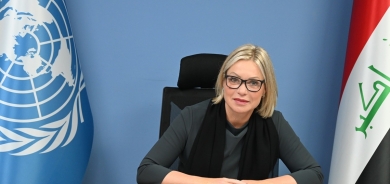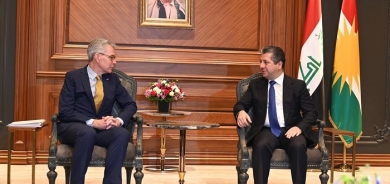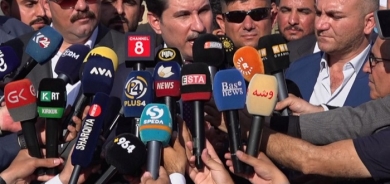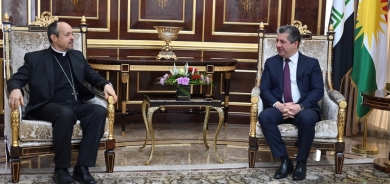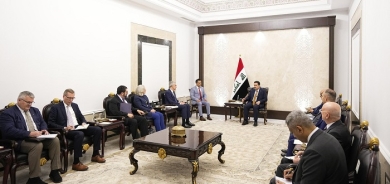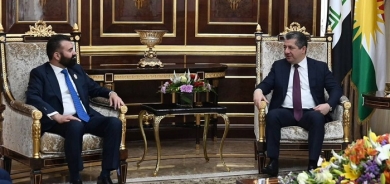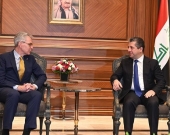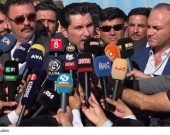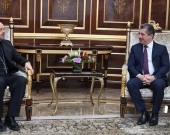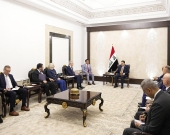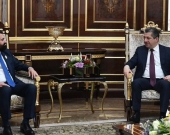Iraq protects energy towers from ISIS attacks with military force
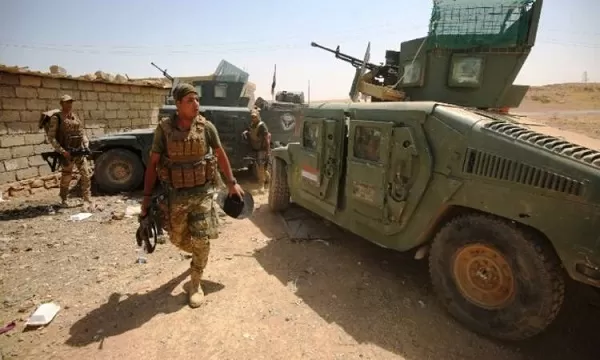
On Monday, the Iraqi army began a military operation to secure the electric power towers in Nineveh Governorate, in the north of the country, and protect them from the attacks of ISIS terrorist remnants.
An officer in the Nineveh Operations Command said that "a military operation was launched to protect and secure the electric power towers from being repeatedly targeted by ISIS terrorist elements in Nineveh (north)."
The areas west and south of Mosul, Nineveh, have recently witnessed repeated attacks targeting electric power towers, causing two of them to go out of service.
The military operation began hours after the arrival of a high-ranking military delegation led by the Deputy Joint Operations in the army, Lieutenant-General Abdul-Amir Al-Shammari, to Nineveh Governorate.
The joint operations stated in a brief statement that the delegation includes the commander of the ground force, the director of the Popular Mobilization Operations, and senior leaders of the security services.
The delegation will follow up the security situation and implement a plan to protect the operating infrastructure in the various regions of Nineveh, according to the statement.
Over the past days, the Iraqi authorities announced that a number of electric power transmission towers had been attacked in the governorates of Diyala (east), Kirkuk, Salah al-Din and Nineveh (north).
The power outage coincided with Iraq's capture (along with Kuwait and Saudi Arabia) on the list of the 15 most regions in the world with the highest temperatures, which prompted the authorities to suspend the official working hours in some governorates, while others announced their reduction.
At dawn last Friday, Iraq witnessed a complete shutdown of electric power in the country due to a technical defect and acts of sabotage that affected electric power transmission towers by terrorist groups and saboteurs.
After the authorities were able to restart the power generators, the Iraqi government announced the acceptance of the resignation of Electricity Minister Majid Hantoush, and the dismissal of the director of the Electricity Transmission Company (South) from his post, following popular protests over the power outage in the country. And Iraqi Prime Minister Mustafa Al-Kazemi decided to form a cell to counter the lack of electricity.
The Iraqi authorities allocated a rewarding financial reward to the cooperators for informing the forces deployed in the operation sectors of the army, the Federal Police, the Popular Mobilization, the local police and the Energy Police about any case of targeting the electric towers.
Iraq has been suffering from an electricity shortage crisis for decades due to successive wars and the instability of the security situation in the country, as well as the rampant corruption.
The main electricity network in Iraq suffers from interruptions that last for hours a day throughout the year, but the matter is exacerbated during the summer months when the temperature usually records 50 degrees Celsius and the use of air conditioners increases.
The chronic electricity crisis in the country and the inability of its successive governments for more than a decade and a half to overcome it, despite the country being one of the major oil producers and exporters in the world, has often represented an example of the failure to manage the state's resources and rent them to serve the community and meet its basic needs, and a reflection of the extent of corruption penetration in state institutions.
Iraq produces between 19 and 21 thousand megawatts of electric power, while the actual need exceeds 30 thousand megawatts, according to officials in the electricity sector.
Late last year, a commission of inquiry formed by the Iraqi parliament reached a spending of 81 billion dollars on the electricity sector since 2005, with no significant improvement in service.

